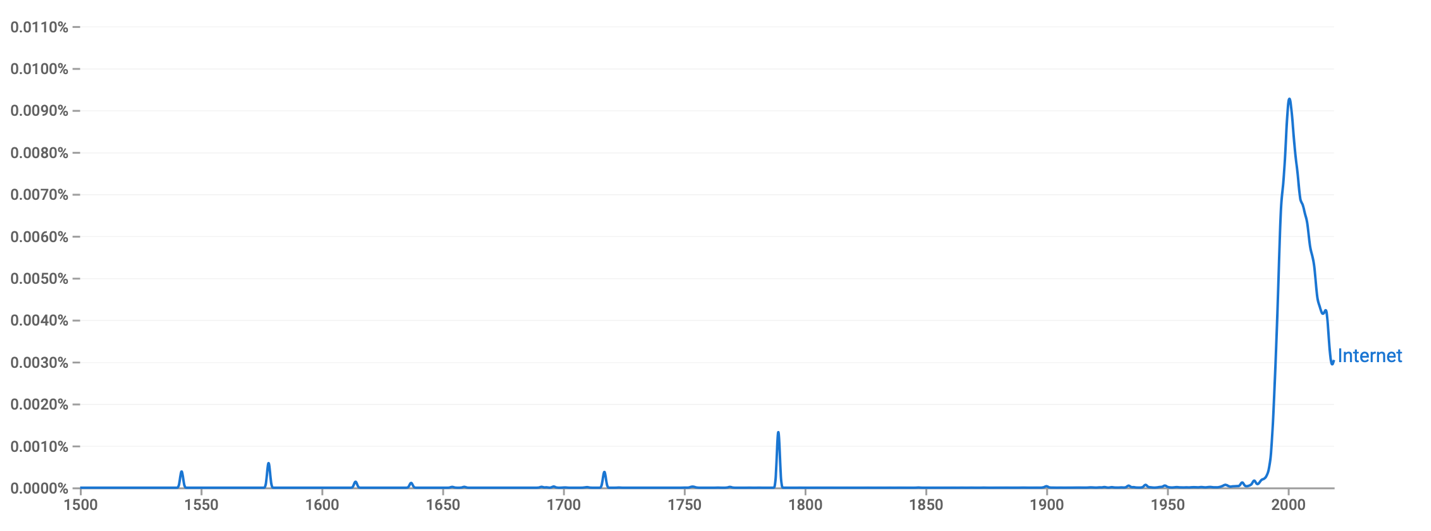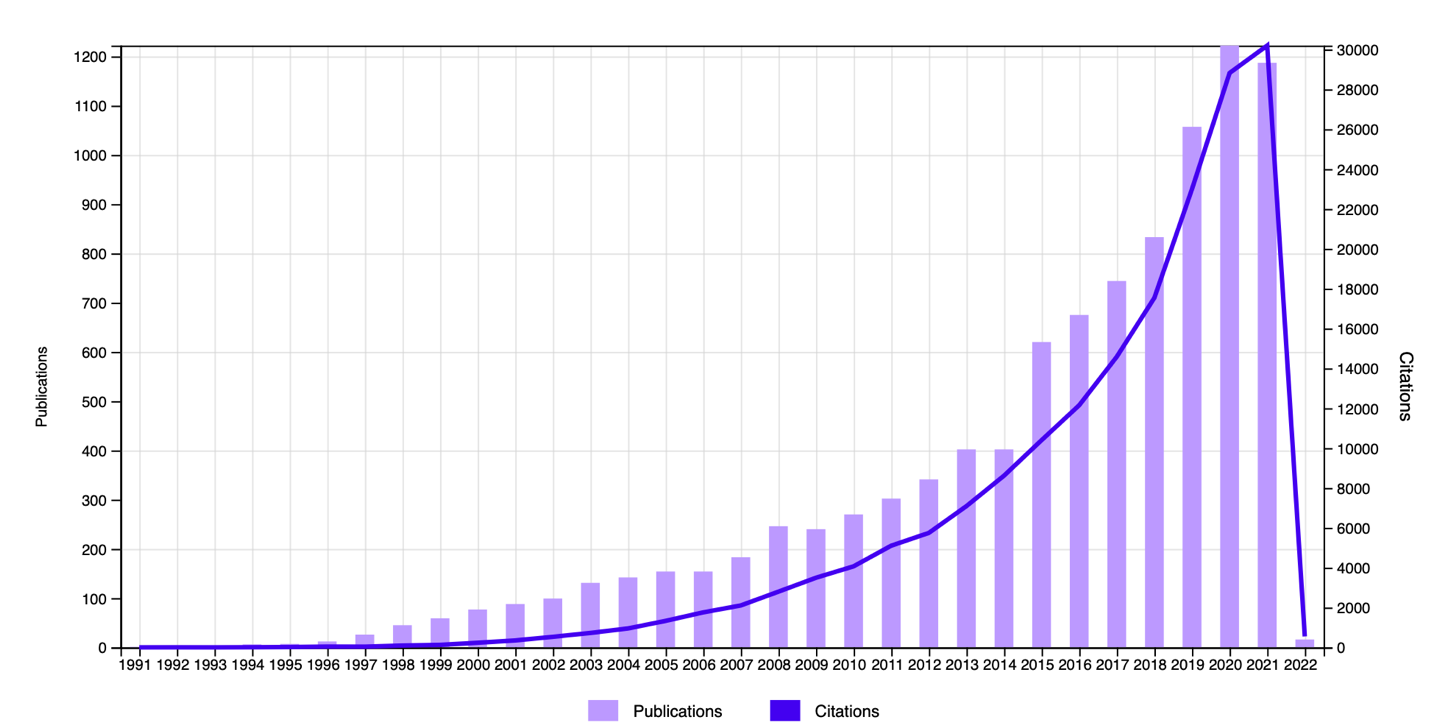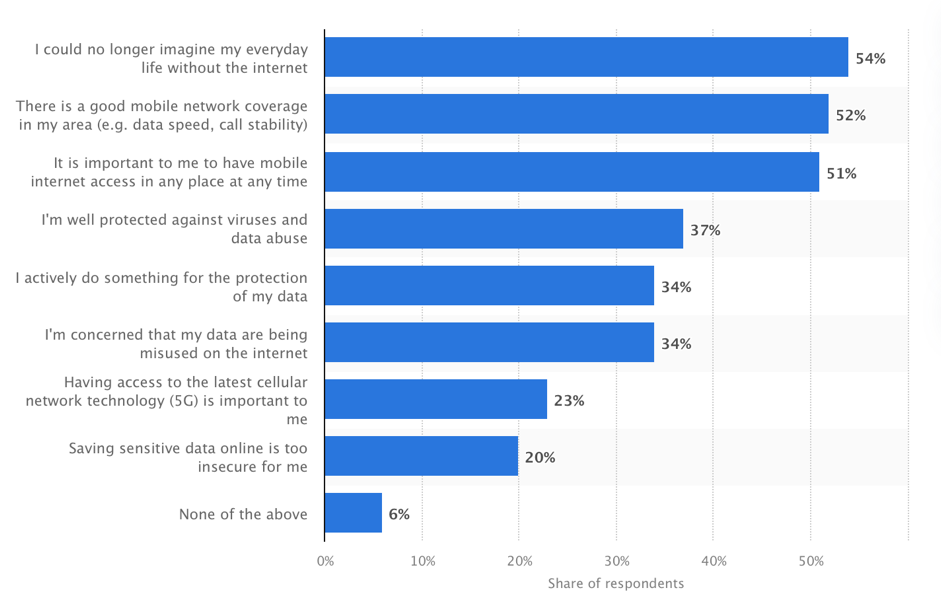Introduction
One of the main consequences of the intensification of the world’s globalization processes has been the emergence of the Internet as a powerful tool for connecting communities in different parts of the planet. Although the initial goal of creating the Internet was different from what it eventually became, the profound positive effects of this phenomenon cannot be ignored. Thanks to the emergence of the global network, users worldwide were linked by communication and interaction: state borders, the Iron Curtain, and other instruments of containment no longer exerted dominant power. From almost any country on the planet with Internet access, people can be connected to the rest of the world. This applies to everyday communication, work, study, learning the news, or gaining international knowledge. Thus, the Internet has become a major tool for the integration and rapprochement of human communities, which has undoubtedly affected the change in social thought.
The research question of this essay is to determine the importance and significance of the Web for modern civilization. Acknowledging the firm existence of the Internet prevents empty speculation about how much humanity needs it and what would happen if the Internet did not exist. About half a century ago, Internet technology was created, and the world has been radically restructured ever since. Probably if the Internet had not been created then, such technologies would still have appeared one day, as the demand for a tool of globalization gradually emerged. Meanwhile, with the Internet as such a resource, communities are actively using it for various purposes, each covering a need for information. One of the clearest examples of realizing this need is social networks, websites, and electronic platforms as branches of virtual media. These channels are critical components of the modern Web, without which it is not easy to imagine the normal functioning of the Internet. Every day, many users worldwide use social networks such as Facebook, Instagram, or TikTok, read news items on CNN or Forbes platforms, for example, and use any other service to receive information in response to requests.
In this context, it is reasonable to assume that the Internet turns out to be extremely important for the entire global community because it solves major problems of an informational nature. In addition, the use of the Internet connects and connects people, creates tens of millions of jobs, and stimulates the development of technology. The Internet is said to be incredibly important in the context of the entertainment industry since one of the concomitant functions of the Net is to provide entertainment. For example, users can watch videos on social networks, play online games, or read stories: all of which fulfill the central purpose of information exchange, even if such information is not necessarily helpful in terms of world progress.
The methodological basis for this study was the use of literature review as a central research tool. A literature review creates a comprehensive view of the subject under study, using scientifically-based knowledge from authoritative sources. This response to a qualitative approach to research in which the critical questions of the project are “how” and “why” instead of focusing on numerical trends. The literature review, among others, allows us to assess the current academic agenda, and therefore its use as a methodological tool has particular potential for answering the research question posed.
A systematic literature review was used in this paper to cover an understudied issue of the importance of the Internet. In particular, the availability of the global network and the seeming impossibility of abandoning it generate a legitimate lack of public interest in studying the issue. The academic search seeks to address this gap through a systematic critical analysis of current scholarly writings. An analysis of the total body of work presented in digital databases was primarily conducted. For example, the Google Ngram platform was used to tentatively determine the dynamics of print media interest in studying the Internet phenomenon. Figure 1 well demonstrates that a spike in mentions of a critical term was characteristic of the beginning of the current millennium, and over time the number of mentions fell.

At the same time, at the preliminary stage of the literary search, the Web of Science service was used, which helps track trends in the publication of thematic scientific papers. The result of accessing the Web of Science is shown in Figure 2: it is seen that the number of academic papers on the query “The Importance of the Internet” has grown exponentially over the past decades. From this, it was concluded that research on aspects of the use of the Web is an essential agenda for the academic community.

Thus, it was determined that researching the importance of the Internet using digital databases of scholarly writings proves a feasible strategy. In more detail, platforms such as Google Scholar and Semantic Scholar were used, through which four articles were discovered and critically examined. Their use satisfied the inclusion criteria presented by writing in English, thematic relevance, and novelty of perspectives. A sequential literary analysis of the four papers is the focus of the following section.
Literary Search
One of the first papers used for analysis is a web article published in 2019. In the piece, Dentzel (2019) holds firmly that the advent of the Internet has led to revolutionary changes in society. Thus, all areas of human activity have been impacted by Internet technology, whether it is ordering food, communicating, or even working remotely for an American company from the other side of the Earth. However, Dentzel’s central thesis focuses not on a descriptive characterization of the Web but rather on exploring its metamorphosis. Specifically, the author argues that the Internet has ceased to be a platform just for sharing information between users, but has become “a sophisticated multidisciplinary tool enabling individuals to create content, communicate with one another, and even escape reality” (Dentzel, 2019, para. 5). The author’s words make sense because if one assesses the practical agenda of using the Web today, it has ceased to be used purely for informational purposes. Global network technologies find their application in almost all everyday tasks, so the use of a smartphone, tablet, or computer has ceased to be focused only on obtaining information on a specific request. In this context, it is fascinating to mention the broad phenomenon of IoT development as many physical devices are connected to the same network and act as a holistic system that simplifies the lives of communities.
The second paper to review was an article posted on MIT TR in 2014. The author of this piece, Castells (2014), attributes critical importance to the Internet in terms of the evolutionary development of civilization. The Web has become a tool for the revolutionary globalization of society, resulting in a new, networked society. In such a system, all participants are aware of the depth of the digital world and belonging to virtual integration. In turn, the facilitation of networking through improved technological accessibility and traffic speed allows increased individuals to join this network, which also affects the decision of companies, governments, and social communities to use the Internet for promotion. In other words, the Internet has created opportunities for all interested parties, and by now, it is no longer seen purely as a way of obtaining information. The Web is now used for promotion, trade representation and business, and brand representation in a virtual environment.
Since a qualitative approach was used for the study, it was of particular interest to refine the subjective questionnaire data obtained through surveys. The collection of primary data was associated with certain resource costs, so it was decided to use already existing results of questionnaire research. For example, Kunst (2021) reported that more than half of Americans between 18 and 64 could not imagine their lives without the Internet. At the same time, 51 percent of respondents said that it is essential for them to have uninterrupted access to the Web at all times. These findings suggest that today’s American society is proving too dependent on daily Internet use, which means abandoning it will be a more painful practice for communities. Notably, only one in three are concerned that third parties could misrepresent their data, be they large companies, the government, or terrorists (Kunst, 2021). This leads to another conclusion that identified online dependency turns out to be stronger than a motivated desire to protect one’s privacy, although this claim requires further verification.

Finally, the fourth literary source for this paper was an article in the authoritative New York Times, published in the era of the COVID-19 pandemic. In the paper, Koeze & Popper (2020) described a change in the behavior of Internet users in times of massive societal restrictions caused by viruses. One effect is focusing on the virtual entertainment industry, as visiting public spaces became impossible. People have become more active in using video chat applications to connect with other users (and thus perform a communication function) at a distance and in safety. Zoom and Skype video chats became a staple for distance learning and quarantined work meetings. The expected spike in traffic came in the video game industry, as there were no other options for sporting pastimes. Thus, it is correct to conclude that the Internet turns out to be a sensitive environment shaped by communities, and so any external pressures naturally resonate among users as well.
Theory
Four papers posted on the Internet were examined using the literature review as a central methodological tool. The type of works used can be classified as web articles, opinions, and statistical results. Based on the results obtained, it is possible to firmly state that the Internet is a dynamic and sensitive environment constantly changing. At the same time, user behavior is also changing, as the Internet is a product of social interactions and a factor of influence on individuals. The Internet is a critical invention of humanity, whose functionality constantly expands. The modern Web is no longer used purely for informational purposes in the literal sense, but instead, people use the Internet to order food, work, study, and spend their leisure time playing games or watching movies. The results of a statistical test showed that most Americans could not imagine their lives without the Internet. To some extent, this may indeed be true: the global Web has proven to be so helpful and comfortable to use that abandoning it will cause many problems.
Conclusion
To summarize, it must be emphasized that the Internet is a universal platform that allows humanity to exchange information and interact with the media space. This paper conducted a literature search among virtual media, whether social media, news magazines, or blogs. It was shown that people use the Internet for very different purposes, lying on different planes: from communicating with loved ones through video chat and ordering take-home food to gain fundamental knowledge through digital databases and spending time playing video games. The Internet is thus multifaceted, and it is this trait that contributes to its high relevance to modern society. To put it another way, the user always has a choice of what to do on the Internet, and thus the critical dependence on it continues to strengthen. The conclusion obtained in the work clearly showed that only a third of users are concerned about protecting personal data. In this regard, it is crucial to recommend that users continue to learn the basics of computer literacy and their data protection. This will allow people to be more confident users and qualitatively unlock new Web opportunities for communities.
References
Castells, M. (2014). The impact of the Internet on society: A global perspective. MIT TR. Web.
Dentzel, Z. (2019). How the internet has changed everyday life. OpenMind BBVA. Web.
Koeze, E., & Popper, N. (2020). The virus changed the way we internet. NYT. Web.
Kunst, A. (2021). Which of the following statements apply to you? Statista. Web.